Accolades

Lawrence R. John Elected President of Pennsylvania Medical Society
Lawrence R. John, a clinical instructor for the department of family medicine at the University of Pittsburgh School of Medicine was recently sworn in as the 170th president of the Pennsylvania Medical Society.
The society is a physician-led organization representing all physicians and medical students throughout the state of Pennsylvania.
John also was elected by the society’s statewide House of Delegates in 2017 to serve one-year terms as vice president (2017-18) and president-elect (2018-19) before assuming the role of president for the 2019-20 term. He is also a family medicine physician affiliated with UPMC St. Margaret.
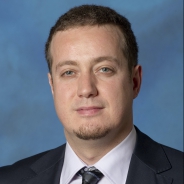
Engineering Team Receives NSF Funding to Study Brain in Rehabilitation Research
A team of researchers from the University of Pittsburgh and Northeastern University received a combined $1,181,757 from the National Science Foundation to develop a brain-computer interface (BCI) system that will be implemented in augmented reality, allowing for better detection, assessment and rehabilitation of unilateral spatial neglect. Unilateral spatial neglect is a deficit in attention that can occur in individuals who experienced a stroke.
The Pitt side of the team is led by Murat Akcakaya, assistant professor of electrical and computer engineering in the Swanson School of Engineering.
The researchers plan to focus on visual neglect and address the shortcomings of current rehabilitation by reaching beyond the clinical setting and taking activities of daily living into account. They will develop a noninvasive, portable and cost-effective tool that can be used to help guide rehabilitation programs in real-time.
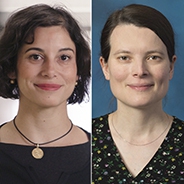
Two Scientists Win High-risk High-reward Grants for Research Programs
Anne-Ruxandra Carvunis, assistant professor of computational and systems biology in the School of Medicine, and Caroline Runyan, assistant professor of neuroscience in the Dietrich School of Arts and Sciences, have won NIH Director’s Awards for pursuing major opportunities and gaps in biomedical research that require trans-NIH collaboration to succeed.
Carvunis’ research focuses on addressing questions about the uniqueness of different plant, fungi and animal species. These questions include how new genes can emerge without having parent genes, how networks of interacting molecules form and change within cells and how these networks differ across species.
Runyan’s work looks at the brain’s ability to flexibly control perception and behavior in different situations. Specifically, she images and manipulates cells and circuits to learn how the brain is able to shift gears quickly, as well as how it processes different types of sensory information depending on behavioral context.
Carvunis and Runyan both won New Innovator Awards. Part of the High-Risk High-Reward Research Program, these honorees are early stage investigators within 10 years of doctoral or postgraduate training who propose innovative, high-impact projects in the biomedical, behavioral or social sciences.

Three Distinguished Alumni Fellows Named
Howard W. Hanna, Jr. and siblings Simone Myers Karp and Lloyd N. Myers have been named Distinguished Alumni Fellows in recognition of their outstanding service to the University and their professions. The award is the highest alumni honor conferred by the University of Pittsburgh and its Alumni Association.
Hanna (BUS ’42, ’49G) established Howard Hanna Real Estate Services in 1957 and built the company into the nation’s third-largest real estate firm. He was instrumental in creating the industry-changing West Penn and East End Multi Lists and in 1991 was appointed Chair of Pennsylvania’s State Real Estate Commission.
In 2014, the Howard Hanna Family Foundation established Howard W. Hanna, Jr. Scholarship Funds in the College of Business Administration and the Joseph M. Katz Graduate School of Business.
Karp (PHARM ’86) helped revolutionize the pharmaceutical industry through her work in educating physicians on the use of emerging oncology medicines. The complex drugs required doctors to not only understand how to use the medications, but also the complexities of supporting patients through the intense prescription regimens.
As a retail pharmacist, Myers (PHARM ’84) created a new standard for dispensing specialty pharmaceuticals such as those used to treat organ transplant and cancer patients. Pharmacies throughout the nation quickly adopted the system, which includes patient support and proactive interactions with insurance providers to help patients better manage their prescription costs and adherence.
Siblings Karp and Myers teamed to form CECity in 1997. The company introduced a new model for medical continuing education that took advantage of the still-young internet, using online training to teach doctors and pharmacists to prescribe and distribute new pharmaceuticals.
Karp funded the Hank Karp Brain Cancer Drug Project and the Hank S. Karp Neuro-Oncology Fellowship at Pitt in honor of her late husband.
Myers, through the Myers Family Foundation, provides lead financial support for the educational component of the Center for PharmacoAnalytics at the School of Pharmacy.
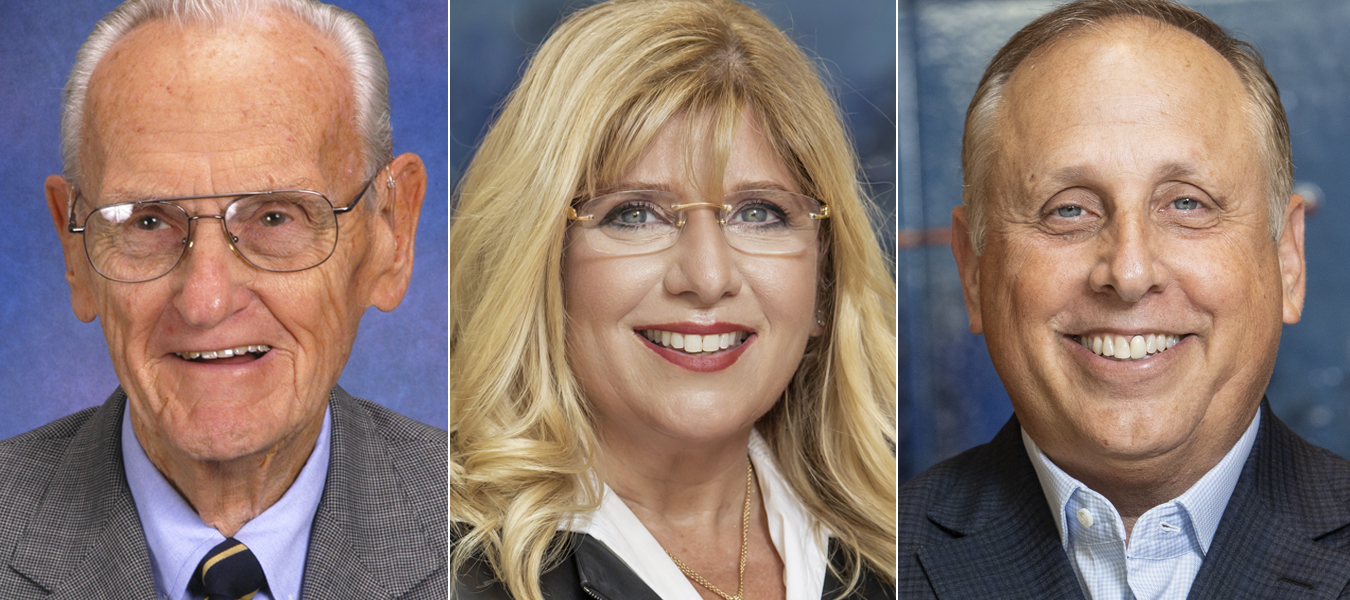
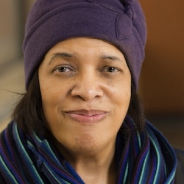
Willa Doswell Named 2019 Woman of Excellence by New Pittsburgh Courier
Willa Doswell, associate professor in the School of Nursing, has been named a 2019 Woman of Excellence by the New Pittsburgh Courier.
The awards are given annually to 50 African American women who have made significant contributions to the community.
Doswell will be recognized at a luncheon in downtown Pittsburgh on December 12, 2019. She is also a member of the Internal Advisory Council for Pitt’s Community Engagement Centers.

Pitt Innovation Challenge Awards $460,000 for Novel Health Care Solutions
$460,000 in prizes were awarded at the 2019 Pitt Innovation Challenge (PInCh) final event, where University of Pittsburgh research teams proposed creative solutions to a live audience and a panel of judges to address important health problems.
After two rounds of pre-selection, 14 project teams were invited to the final event where six finalists — each competing for a $100,000 prize — and eight finalists competed in a poster session for $25,000 prizes.
This year, the Clinical and Translational Science Institute, the challenge's sponsor, incentivized solutions for problems known to impact rural health disparities by offering an additional bonus award up to $25,000.
$100,000 awards:
- OneValve: A self-regenerating heart valve that uses the patient’s natural healing process to replace diseased heart valves, decreasing the risk of blood clots and improving durability over current therapy.
- HIV Detective: A “one-minute” HIV test that can detect infection at the point of patient contact with health care providers.
- CyteSolutions Lens: A silicone-hydrogel-based contact lens that has been coated with natural biopolymers containing an immune modifying drug for the treatment of dry eye disease.
The Clinical and Translational Science Institute website shows the full list of winners and project descriptions.

Pitt Online Master of Science in Nursing Program Near Top in National Ranking
The University of Pittsburgh was ranked in the 15 Best Online Master of Science in Nursing Degree Programs for 2020 by Best Health Degrees.
Pitt placed third in the ranking for its online MSN program. The ranking website makes note of the University’s “cutting-edge” research in STEM fields like nursing, which “increases the prestige of such programs.”
“Few train nurses for clinical management roles as the program at Pitt does,” according to the ranking’s statement on Pitt’s placement in its annual list. “Nurses who want to advance to management roles but still work in the clinical side of nursing should consider Pitt to be one of the best MSN programs for their needs, and one of the top RN to MSN online programs overall.”

Pitt Researchers to Create Vision System Mimicking Human Sight
New research from the University of Pittsburgh will develop a neuromorphic vision system that takes a new approach to capturing visual information that is based on the human brain, benefiting everything from self-driving vehicles to neural prosthetics.
The project will receive $500,000 from the National Science Foundation. Ryad Benosman, professor of ophthalmology at the University of Pittsburgh School of Medicine who holds appointments in electrical engineering and bioengineering, and Feng Xiong, assistant professor of electrical and computer engineering at the Swanson School of Engineering, are leading the effort.
The team will use a “spiking neural network” with realistic dynamic synapses that will enhance computational abilities, develop brain-inspired machine learning to understand the input, and connect it to a neuromorphic event-based silicon retina for real-time operating vision.
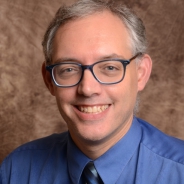
Interim Associate Dean for School of Medicine Chosen
Jason Rosenstock, associate professor of psychiatry at the University of Pittsburgh, has been selected to serve as interim associate dean for medical education at the Pitt School of Medicine.
In this role, Rosenstock will ensure high-quality teaching in courses and clerkships for each year of medical school. This includes overseeing instructional support, academic development, facilities management, evaluation and feedback, student assessment, educational technology, faculty development and program evaluation.
“I’m honored to have been chosen for this role. I’ve spent most of my career working in medical student education, and this position gives me an opportunity to build on the successes of our school. It will be challenging, and a learning process for me, but also fun and rewarding,” he said.

LifeX Labs Receives Economic Development Administration Entrepreneurship Grant
LifeX Labs has received a $750,000 grant from the U.S. Economic Development Administration (EDA) to enhance its efforts in southwestern Pennsylvania. It is among 44 organizations nationwide — and the only one in Pennsylvania — to share a total of $23 million awarded under the EDA’s i6 Challenge grant program to expand entrepreneurship.
LifeX Labs is a life science startup accelerator launched by the University of Pittsburgh in 2017 with a mission to help startup companies translate the region’s world-class research into breakthrough commercial products.
“LifeX helps young life science startup companies overcome the unique challenges that they face,” said Evan Facher, interim CEO of LifeX Labs. “The goal of this award is to help LifeX accelerate the development of resources and programming needed to enable these companies to thrive in the Pittsburgh region. In parallel, the award will also help us build a stronger sense of community within the life sciences ecosystem.”
With this three-year award, LIfeX Labs estimates that it will have the ability to serve thousands of innovators and entrepreneurs, add dozens of startups to its portfolio, and create over 100 jobs in the region by 2028.
In part, the funding will aid development of programming for pre-seed to Series A life-science companies; engagement of regional key opinion leaders to identify needs and opportunities in the life science community; and creation of a pipeline of life science workers at all skill levels in collaboration with local colleges and job training organizations.
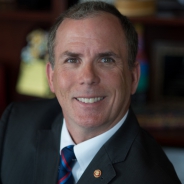
Rory Cooper Completes Heidelberg Hand-Bike Marathon
Rory Cooper, director of the Human Engineering Research Laboratories at Pitt and associate dean for inclusion at the School of Health and Rehabilitation Sciences, recently raced in and completed the Heidelberg Hand-Bike Marathon. Cooper finished with a time of one hour, twenty-seven minutes.
“The course was a bit more challenging than I thought, and I ended up most of the time by myself or pulling others along. I sported by Army jersey,” he said.
Twenty-one family members and friends came to Heidelberg to cheer for him and other participants.
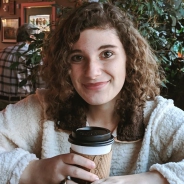
Student Hosts Medical Humanities Podcast
Rising senior Emma Wolinsky is bringing conversations about medical humanities to life in a podcast called “Remains to be Seen.”
Wolinsky, a pre-med student who is majoring in English Literature in the Kenneth P. Dietrich School of Arts and Sciences, launched the podcast in April 2019 with the help of Jeff Aziz, senior lecturer and adviser in the Department of English, and Jason Dechant, assistant professor in the School of Nursing. Wolinsky and her faculty co-hosts bring perspectives across disciplines as they discuss topics like the history of the human body in medicine, anatomy and culture. Episode subjects have ranged from the theft of a dead body of a United States president’s son to “shocking” results from an over-the-counter genetic test.
Wolinsky says her two diverse interests of science and literature come from her parents. “My mother is an anesthesiologist, which is where my fascination for medicine comes from, and my father was a reformed rabbi who taught me how to appreciate texts and the power of personal connection,” said Wolinsky, originally of Beachwood, Ohio. “These two fields of medicine and the humanities are inseparable to me and come together to make me who I am today.”
“Remains to be Seen” is available on iTunes and Spotify; search for “Remains to be Seen” under “podcasts,” or in your podcast app.

Pitt Men’s Study Renewed by NIH, Will Enter Fourth Decade of HIV Research
The Pitt Men’s Study, part of the national Multicenter AIDS Cohort Study (MACS), will be renewed into 2026 at nearly $4 million per year. The funding from the National Institutes of Health will carry the long-running study into its fourth decade.
The confidential study on the natural history of HIV/AIDS is part of the University of Pittsburgh Graduate School of Public Health’s Department of Infectious Diseases and Microbiology and is directed by the department's chair, Charles Rinaldo (pictured).
Read more about the study at UPMC.
- « first
- ‹ previous
- 1
- 2
- 3

